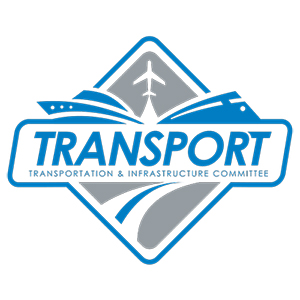House signs off on multi-year surface transportation authorization
The U.S. House of Representatives today widely approved a long-term transportation authorization, entitled The Surface Transportation Reauthorization and Reform (STRR) Act of 2015, by a 363-64 margin.

The U.S. House of Representatives today widely approved a long-term transportation authorization, entitled The Surface Transportation Reauthorization and Reform (STRR) Act of 2015, by a 363-64 margin.
The objective of this bill is to reauthorize and reform federal highway, transit, and safety programs, according to the House Transportation and Infrastructure Committee.
The STRR Act was introduced by the T&I Committee in mid-October.
Committee officials said that the bill is geared to augment national surface transportation infrastructure, reform programs, and refocus those programs on addressing national priorities, maintains a strong commitment to safety, and promotes innovation to make the system and programs work better. It added that the proposal is fiscally responsible, provides greater flexibility and more certainty for states and local governments to address their priorities, and accelerates project delivery.
They key objectives of this legislation are to improve U.S. infrastructure, reform surface transportation program and refocus those programs on addressing national priorities, maintaining a strong commitment to safety, and innovation focused on making the national transportation system safer and more efficient.
The bill is comprised of particular components related to freight transportation and the supply chain, including:
- facilitating commerce and the movement of goods by modifying the National Highway Freight Network, with total mileage to increase from 27,000 to 41,000;
- refocusing existing funding to create a Nationally Significant Freight and Highway Projects program at $4.5 billion for fiscal years 2016-2021 for large-scale projects of national or regional importance
- dedicate funding specifically for freight projects and establish a competitive grant process to ensure the best projects are awarded funding; and
- a focus on the National Highway System and the nation’s freight needs; and
- extend the deadline for U.S. railroads to implement Positive Train Control technology;
But some amendments with a freight transportation angle did not make the cut, including
allowing 91-foot-long trucks (also known as Double or Twin 33’s) onto all U.S. Interstates and national highway routes.
Some other key components of the bill include consolidating truck and bus safety grant programs and provide states with the flexibility to focus funding on safety priorities, providing a competitive grant option to address truck and bus facility needs, and accelerate the introduction of new technologies like electronic logging devices.
The Federal Motor Carrier Safety Administration also received a fair amount of attention in the bill, with it calling for changes to the CSA (Compliance, Safety and Accountability) program to improve fairness and transparency, as well as reforming the regulatory process by requiting FMCSA to review regulations every five years to ensure they are current, consistent, and uniformly enforced.
Along with the $4.5 billion committed to highway, freight infrastructure, a report in The Hill said that it would spend $261 billion on highways, $55 billion on transit, and roughly $9 billion on safety programs. But as was the case with a Senate bill rolled out this summer called the DRIVE Act, there is only funding currently available for the first three years of the Surface Transportation Reauthorization and Reform Act of 2015.
Funding remains an issue, though, as the federal gasoline tax, the primary funding mechanism for surface transportation, continues to run at a shortfall bringing in about $34 billion per year and the federal government spending $50 billion on transportation projects, with the tax remaining at the same levels since 1993.
The Hill report noted that the Congressional Budget Office has estimated that it will take about $100 billion, coupled with annual gas tax revenues, to fund a six-year bill. And it added that House aides maintain that another short-term continuing resolution is likely in order to give Congress time to conference on a long-term bill.
The House passing this authorization comes at a time when current transportation funding is again in the balance, with surface transportation authorization funding being propped up by its 35th short-term extension since the last multi-year authorization expired.
The next step for the STRR Act is to go to conference with a Senate version between now and November 20, when the current short-term extension expires.

Article Topics
Latest in Logistics
Under-21 driver pilot program a bust with fleets as FMCSA seeks changes Diesel back over $4 a gallon; Mideast tensions, other worries cited Four U.S. railroads file challenges against FRA’s two-person crew mandate, says report XPO opens up three new services acquired through auction of Yellow’s properties and assets FTR’s Trucking Conditions Index weakens, due to fuel price gains U.S. rail carload and intermodal volumes are mixed, for week ending April 6, reports AAR LM Podcast Series: Examining the freight railroad and intermodal markets with Tony Hatch More LogisticsSubscribe to Logistics Management Magazine

Find out what the world's most innovative companies are doing to improve productivity in their plants and distribution centers.
Start your FREE subscription today.
April 2023 Logistics Management

Latest Resources














